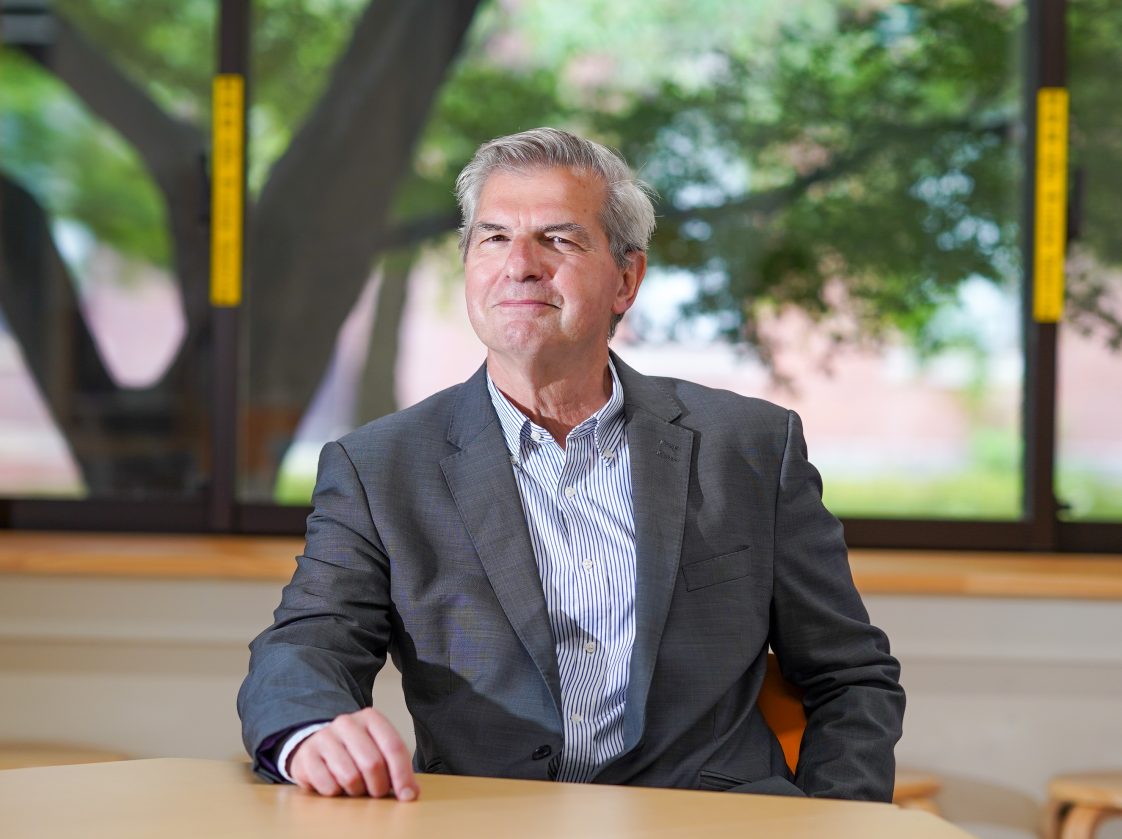Bassino, Jean-Pascal
VISITOR’S VOICE
Interview with ジャン=パスカル・バッシーノ »
リヨン高等師範学校
経済学

— お気に入りを教えてください。
家族との時間
友人や同僚と過ごすのも楽しいですが、私はいつも家族を大事にしてきました。それは私が地中海の島の出身だからでしょう。現代のヨーロッパ人の基準からみるとやや特異な場所で、そこでは広範囲にわたる親族間のつながりが今でも個人のアイデンティティの一部だと考えられています。
田舎の散策
自己紹介でこのように田舎歩きと書くのはちょっと変な感じがします。私はこれまでの人生の大半を都市で過ごしてきたからです。中規模都市のエクサン・プロバンスやモンペリエ、キャンベラ、リヨン、大都市ではローマや東京などです。それでも田舎歩きは本当に好きなことの1つです。山歩きもしますが、たいていはあちらこちらで立ちどまって、景色を眺めるほうが好きです。京都では鴨川沿いの散歩を毎日楽しんでいますが、なかなかいいものです。
ガーデニング
この20年近くいろいろな都市で暮らしてきました。アパートにはせいぜい小さなベランダぐらいしかありませんでしたが、花や観賞植物、食用植物、果物の木を育て、手入れを楽しんでいます。研究者の世界に入ることを決める前は、田舎で高校教師を続けることも真剣に考えていました。時に、事務的な業務に多大な時間を割かねばならないときは、自分の選択は正しかったのかと思うこともありますが、幸いにもこれからはガーデニングにもっと時間を使えるようになりそうです。
Interview
「大分岐」における東南アジア(1600~1914年)
01
ご研究について教えてください。
記憶にある限り、私は常に生活水準の長期的な変化の測定と、その決定要因を探ることに関心を寄せてきました。私の研究はほとんどがこれをテーマとしています。大学で経済学を学ぶ前からも、私たちは人間のウェルビーイング(well-being)を十分に捉えているとは思えない指標の数々を使ってきたとも感じていました。さらに、多くの研究は購買力平価で換算された貨幣所得をウェルビーイングの指標としていますが、生活の改善に伴う代償については見落としがちです。私の当初の認識は、18世紀以降、あるいはそれ以前からのヨーロッパにおける変遷を理解することから生まれました。また20年以上にわたり、同時期の日本の動向にも関心を寄せてきました。現在取り組んでいる研究では、近世から工業化の初期段階までの東南アジア諸国の生活水準を調査することを目的としています。
02
研究で出会った印象的なひと、もの、場所について、エピソードを教えてください。
近世東南アジアに関する研究プロジェクトでは、今はもう存在しなかったり、少なくとも劇的に変化してしまった社会のあり方や自然環境を分析しようとしています。そのため、その地域を訪れる機会があったとしても、研究に必要な情報はあまり得られません。現在のプロジェクトを形にするために最も重要なこととして、私は長年、社会科学のさまざまな分野の、複数の国の研究者と気軽に議論を交わし、彼らの恩師であった人を含め先行研究者の著作を読んできました。そうした研究者のなかで最も大きな影響を受けたのは、間違いなく尾高煌之助教授と同僚の研究者の皆さんです。私が研究者となって間もないころ、3カ月間の国際交流基金のフェローシップで一橋大学を訪れた際にお会いする機会に恵まれました。「アジア長期統計」プロジェクトに私を誘ってくださり、ほどなくして、19世紀末から1980年代までのベトナムのGDPを推計するチームを立ち上げました。統計集の第一巻を出版した後、私たちはもっと広範な調査が必要だという結論に至りました。私は当初、どれだけ時間のかかる作業であるかわかっておらず、一人で取り組むことにしました。そうすれば自分で包括的にとらえることができるだろうと思ったからです。途中、中断した期間もありますが、やり遂げるまでに10年以上を費やしました。キャリアアップするにはある程度の論文を発表しなければならず、さらには所属する研究所の成果に貢献することも求められ、私は研究分野を広げて、他のテーマでも論文を発表しなくてはなりませんでした。そのため、このベトナムの統計集の改訂に携われたのはごく短期間でしたが、来年ようやく改訂版が出版されることになりました。これは、私の人生における大きな経験の一つと言えます。
03
研究の成果を論文や本にまとめる際の難しさをどのように克服していますか?
研究課題をどのように設定するかについて、たいていの場合、最初からかなり明確なビジョンをもっています。とはいえ、次の段階に進むのに時間がかかることが多いです。データを数年間かけて集めなければならないからです。その後は1、2週間、何にも邪魔されず執筆に専念できれば、論文の初稿は書くことはできます。当初は、その初稿を、ワーキングペーパーとして発表し学会で報告できる論文であるかのようにとらえがちです。しかし、たとえ肯定的なフィードバックをもらっても、数週間、数カ月後には自分の初稿を批判的に見るようになります。したがって、私が克服しなければならない大きな難題は、初稿を改訂する時間を見つけ、学術誌に投稿して大丈夫と思える改訂原稿を作成することです。この時点で技術的な壁にぶつかってしまった場合、若手研究者の手を借りるようにしています。時間を効率的に使えますし、これまでのところ、毎回とても楽しく進めています。
04
調査や執筆のおとも、マストギア、なくてはならないものについて教えてください。
私にとっていちばん重要なのは、集中できる時間を確保し、心のゆとりを持つことです。ノートパソコンだけでも仕事はできますが、特に大量のデジタル文書を読まなければならないときや、定量分析をするときは、外部ディスプレイを使うほうが、いつも効率的です。
05
若い人におすすめの本があれば教えてください。
必読書をおすすめするというよりは、さまざまな分野の本をどんどん読んでほしいと思います。特に、多くの経済学者は専門外の本を読むことにあまり時間をかけていないようです。もっとも、日本の研究者はそうではないかもしれません。私自身は、経済学に限らず人類学、歴史学、政治学、さらにほとんど知識のない遺伝学や農学といった分野の本や論文を読むことに、仕事と余暇の多くの時間を費やしてきました。こうした分野の文献は、一見すると私の研究プロジェクトとは無関係に思えます。また、それらの読書に時間を費やすことで、生産性がある程度低下してしまうのも事実です。しかし数カ月後になって、研究とは関係なさそうに思えた本や論文の一節が、たいてい予想外の形でインスピレーションを与えてくれることに気付くことがよくあります。
06
理想の研究者像と、研究者を目指す人へのアドバイスをお願いします。
アドバイスを2点に絞ります。まず重要なことは、若手研究者もベテランの研究者も、自分が関心のあるテーマに取り組むことです。非学術的な意思決定者が決める一時的な流行に惑わされたり、同僚(や指導者)の助言で戦略的に採用されるべきだとされるテーマを選ぶべきではありません。自分に特にふさわしいと思えるテーマに集中することが、結局は投資に見合った成果を生み、社会の要求に応える最良の方法だと思います。また、そうすることで知的好奇心も保たれやすくなり、研究者としての生涯を通じて生産性を維持できるようになるでしょう。2つ目のアドバイスは、モノグラフの執筆が、特に経済学者の間で(おそらくは他の研究分野でも)高く評価されなくても、その選択肢を検討する価値はあるということです。採用や昇進は、もっぱら学術誌への掲載論文の件数で決まる傾向にありますから、出版上の戦略としては賢明でないかもしれません。しかし、リスクの大きい戦略は見返りも大きいはずです。要はリスク回避の問題です。同僚の多くは逆の認識を持っているかもしれませんが、私は、自分がリスクを回避しすぎてきてしまったと思います。
07
今後の抱負をお聞かせください。
現時点の抱負は、命ある限り精力的に研究を続けたいということです。調査したい研究テーマはいろいろありますが、人生は短いですから、優先順位を定めなければなりません。新たな手法、たとえば定量分析などを習得する能力は、次第に低下することも自覚しています。論文を何本か発表することに加え(その中には研究の最終段階に近いものもあります)、比較的簡潔なモノグラフの執筆に充てる時間を増やしたいと思っています。1880年以降のベトナムのGDPを推計する論文が完成したら、できるだけ多くの定量データを用いて、近世東南アジアの経済状況についてモノグラフを執筆したいと思っています。
(2024年4月)
ジャン=パスカル・バッシーノ(Jean-Pascal Bassino)
リヨン高等師範学校(フランスの国立大学院)経済学教授。アジア研究の修士プログラムを担当。2006年から2007年までオーストラリア国立大学、2002年から2005年まで日仏会館(Maison Franco Japonaise、東京)、2018年から2020年までフランス国立科学研究センター(CNRS)の助成を受けて一橋大学経済研究所の客員研究員を務める。ゲーテ大学(フランクフルト)、チュラロンコン大学、ロンドン・スクール・オブ・エコノミクス、ローマ・トレ大学でも1~2カ月間、客員研究員を務めた。主な研究関心は、東アジアと東南アジアにおける生活水準と格差の長期的変化を国際的視野で分析すること。主な論文は、Asia’s ‘little divergence’ in the twentieth century: evidence from PPP-based direct estimates of GDP per capita, 1913–69(P. van der Engとの共著)、Economic History Review, 2020、Sustainable Development in South East Asia, 1700-1870, in S. Broadberry and K. Fukao (eds)、The Cambridge Economic History of the Modern World, Vol. I, 1700-1870, 2021, 146-168など。2024年現在、1880年以降のベトナムの国民経済計算の推計をまとめたモノグラフを執筆中(東洋経済新報社より尾高煌之助・斎藤修・深尾京司編で刊行予定)。東南アジア地域研究研究所招へい研究員として2024年4月~6月に在籍。
Visitor’s Voiceのインタビューをお読みくださり、ありがとうございました。
ぜひ感想をお聞かせください。